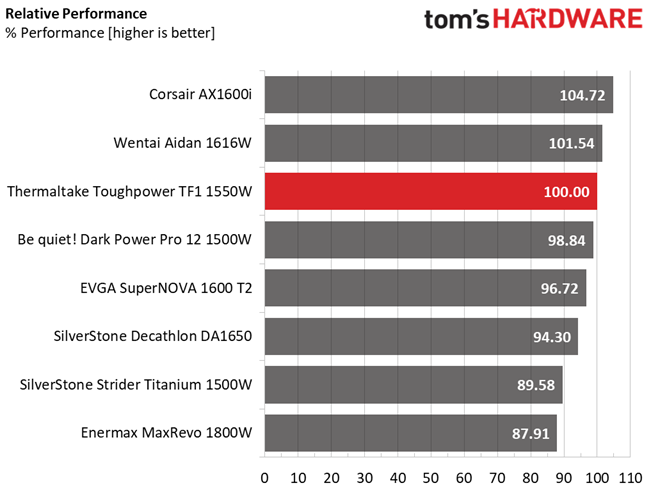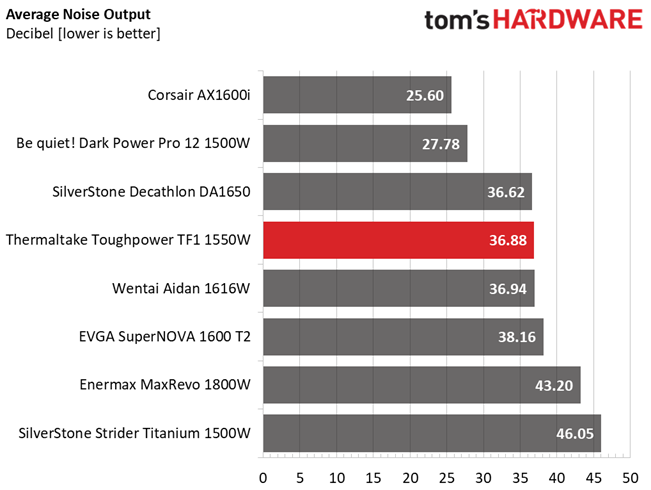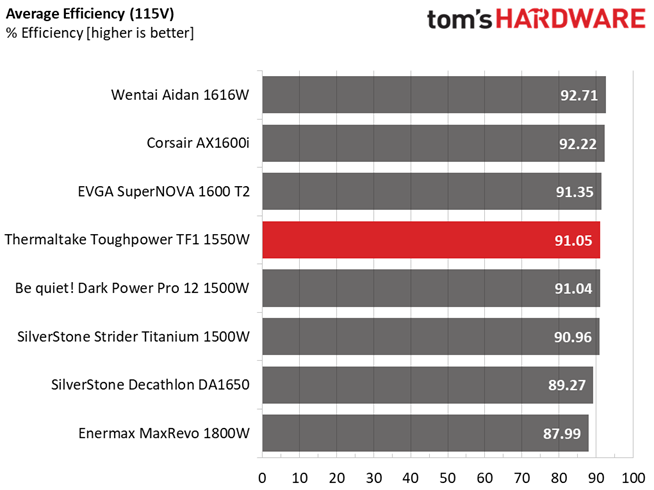Why you can trust Tom's Hardware
Performance Rating
The TF1 1550 takes the lead from the be quiet! unit that is based on the same platform, and it is close enough to the Wentai unit to be competitive. Nonetheless, the Corsair AX1600i is far away.
Noise Rating
The graph below depicts the cooling fan's average noise over the PSU's operating range, with an ambient temperature between 30 to 32 degrees Celsius (86 to 89.6 degrees Fahrenheit).
It loses in noise output to the be quiet! unit, as the latter uses a higher quality frameless design fan. If the fan speed were lower at high loads, the average noise output would be drastically reduced.
Efficiency Rating
The following graph shows the PSU's average efficiency throughout its operating range with an ambient temperature close to 30 degrees Celsius.
The Thermaltake ToughPower TF1 1,550W's average efficiency is on par with the be quiet! unit and is at high enough levels. Still, the analog EVGA 1600 T2 registers higher efficiency, thanks to its bridgeless APFC converter.
Power Factor Rating
The following graph shows this PSU's average power factor reading throughout its operating range with an ambient temperature close to 30 degrees Celsius.
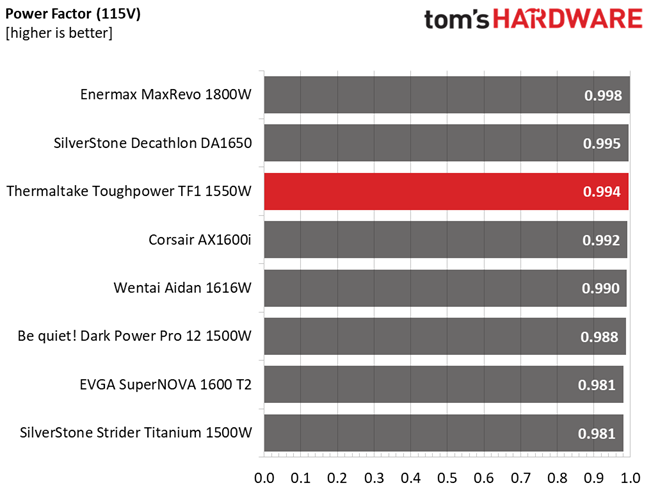
PF Rating Charts
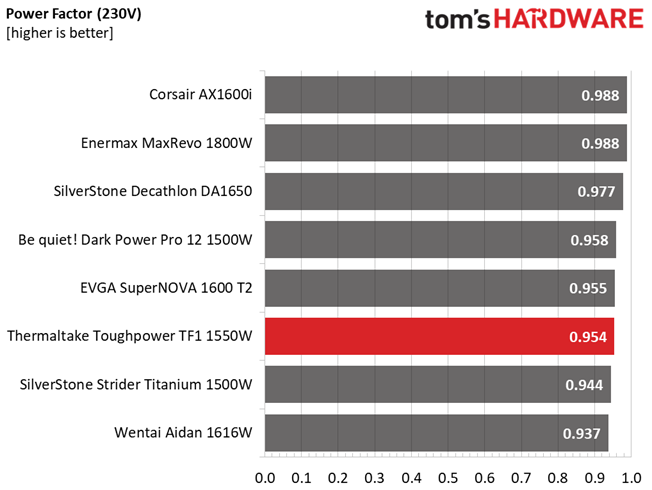
The Thermaltake ToughPower TF1 1,550W is among the best performing PSUs at a 115V input PF. But this is not the case with 230V, where there is room for improvement.
Get Tom's Hardware's best news and in-depth reviews, straight to your inbox.
MORE: Best Power Supplies
MORE: How We Test Power Supplies
MORE: All Power Supply Content
Current page: Performance, Noise, Efficiency and Power Factor
Prev Page Transient Response Tests, Timing Tests, Ripple Measurements and EMC Pre-Compliance Testing Next Page Bottom Line
Aris Mpitziopoulos is a contributing editor at Tom's Hardware, covering PSUs.
